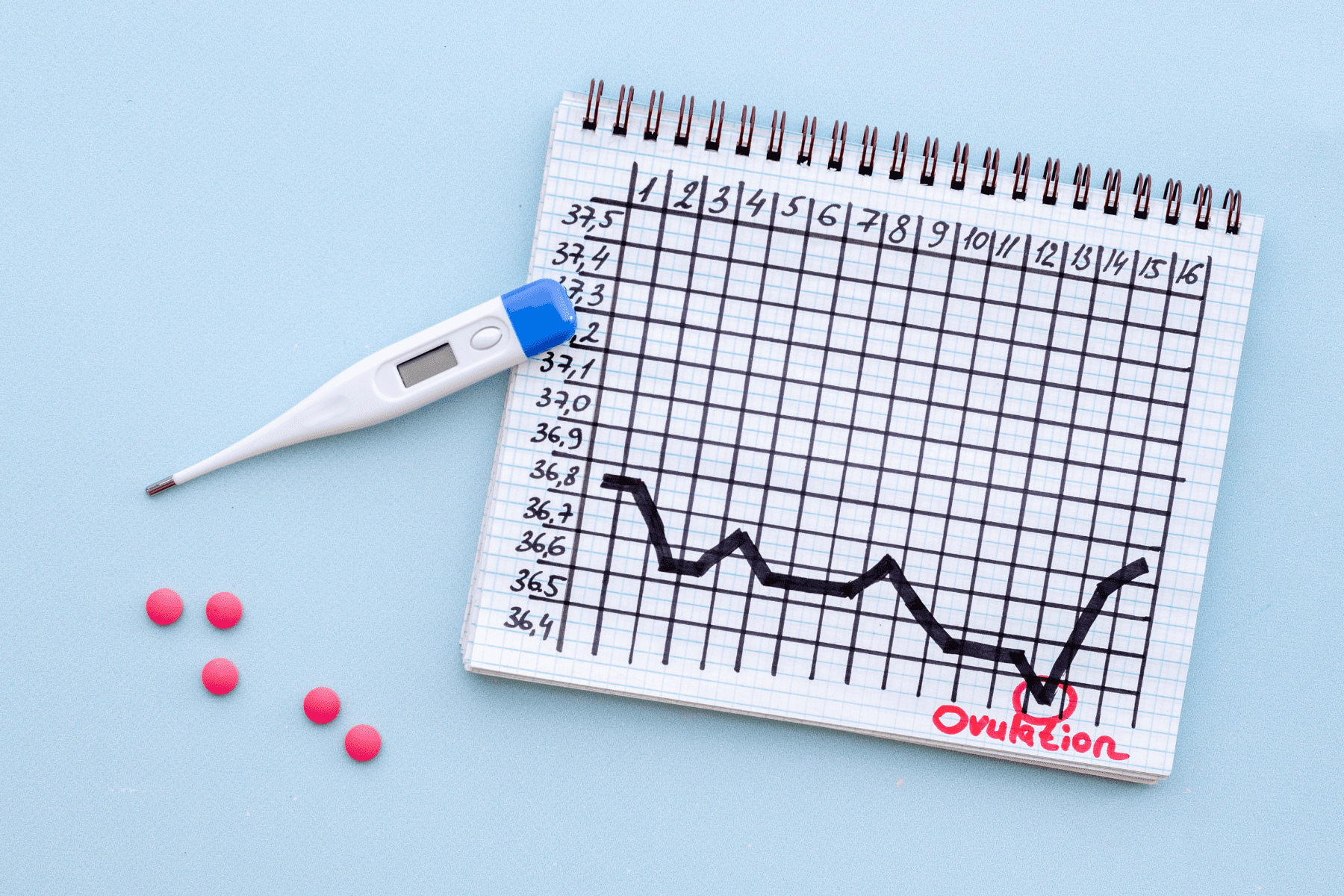Recently, an article in the Washington Post discussed five infertility myths. We’d like to share myth three with you below as well as additional information to help patients make accurate and informed decisions regarding family planning.
Washington Post: Science and healthy living have extended the biological clock.
Women throughout the world are delaying the age when they have children. In the United States, the mean age of first-time mothers in 2016 was 26.6 , the highest ever recorded. In 2003, a “60 Minutes” report found that educated professional women who intended to delay childbearing to pursue their careers had significant misperceptions about age and fertility, believing that medical treatments and good health could extend the biological clock well into a woman’s 40s and even 50s — an attitude that has also been found in undergraduate students. Fertility clinics can also perpetuate this myth with well-intentioned but misleading statements, such as the Fertility Centers of Illinois’ assertion that “advanced medical technology . . . allows us to extend the biological clock for many women.”
Because of the progressive decline in the quality of a woman’s oocytes (eggs) over time, there isn’t a way to naturally extend the biological clock. Nutrition, exercise and healthy living are great in other ways, but they can’t halt this inevitable decline, which begins at age 32 and becomes more rapid at 37. The closest we have come is temporarily stopping the clock through oocyte cryopreservation (egg freezing), but this has limitations and isn’t always an ideal solution. Women freeze their eggs at an age when egg quality is declining rapidly or already past its peak. Furthermore, when the American Society for Reproductive Medicine removed the “experimental” label from oocyte cryopreservation in 2012, it stopped short of recommending elective egg freezing for those hoping to delay childbearing, pending additional data on the safety, efficacy, cost effectiveness and emotional risks of the procedure.
There are parts of this myth that we agree with and there are others that are incorrect when aligned with the proper medical facts. Trying for a baby without success can bring about a great deal of sadness, anxiety, and hopelessness. In an effort to ease this emotional burden and provide patients with reliable information, we’d like to share the knowledge we have gained while treating thousands of patients.
We agree that the common age for a first-time birth is increasing, and we also agree that many people have misperceptions around how the aging process impacts fertility potential. Celebrities becoming pregnant near or past the common maternal age gives others the perception that this is possible for anyone. While celebrities are under no obligation to share personal medical details with the public, many of these pregnancies would not be possible without the use of donor eggs and/or assisted reproductive technologies. The chances of becoming pregnant naturally at age 45 and up are less than 5%.
No professional infertility specialist will claim that treatment options can can extend the biological clock “well into a women’s 40s and even 50s.” Every patient is different, as are their physical and genetic circumstances. The reality of assisted reproductive technology (ART) is that success decreases with age. Undergoing egg freezing at a younger age allows women that see a fertility physician to become pregnant in their mid-40s the opportunity to become their own egg donor. Egg freezing doesn’t solve the problem of age-related fertility and decrease of IVF success with maternal age, but it is an option. Both the American Society for Reproductive Medicine and the European Society of Human Reproduction and Embryology have deemed egg freezing to be no longer experimental based on studies showing similar success with IVF in two scenarios: eggs previously frozen, thawed, then fertilized vs. eggs fertilized immediately after retrieval. The universal fact remains that female fertility declines with age and commonly takes a sharper downturn in the later 30s.
Knowledge of personal fertility and the aging process can be misperceived by many. In our own 2016 national survey research, 52% of respondents over age 35 would have made different life choices if they had known more about infertility at a younger age. Approximately 77% of respondents agreed that infertility education is a necessary component of healthcare and sex education and should be discussed early on during doctor visits and in school to ensure young women are educated at an early age. While misperceptions are common, patients also want information. In an effort to bolster opportunities to receive this knowledge, we work with hundreds of Ob/Gyn physicians to share educational materials around infertility.
Freezing oocytes (eggs) offers the possibility of extending the biological clock. For women who wish to have a biological child and plan to delay having children, freezing eggs will offer an additional option should natural conception not be possible. It is always advisable to freeze eggs at an age when fertility is optimal rather than steadily declining. With age, the success of fertility treatment declines – using healthier and younger eggs will increase chances of success. In terms of outcomes, no patient can be guaranteed to have a biological child from frozen oocytes.
The medical facts show that having a child with frozen eggs offers similar chances of success when compared to having a child with fresh eggs in IVF cycles of optimal patients. At Fertility Centers of Illinois, women who froze their eggs were an average age of 37.1 years. We have thawed 500 eggs frozen for the purpose of delaying childbearing. Of those 500 oocytes, 85% survived the thaw and resulted in a clinical pregnancy rate of 40% at age 40. To put these numbers into perspective, the average clinical pregnancy rate with fresh eggs is 49.2% with an average age of 37. At its best, IVF is 50-60% successful. Undergoing more than one cycle is not uncommon or unexpected. Achieving conception and sustained gestation can be tricky for our bodies – even a healthy couple with optimal fertility at age 35 only has a 20-25% chance of natural conception in any given month.
Study findings show that in women who plan to delay childbearing until age 40, oocyte cryopreservation before 38 years of age reduces the cost to obtain a live birth. A study model predicted that oocyte cryopreservation at age 35 years by women planning to defer pregnancy attempts until age 40 years decreases the cost per live birth from $55,060 to $39,946 (and increases the odds of live birth from 42% to 62% by the end of the model), indicating that oocyte cryopreservation is a cost-effective strategy relative to forgoing it.
Egg freezing isn’t a guarantee but it is absolutely an option. The prediction models exist to help patients estimate whether the number of eggs they have frozen will realistically be beneficial. It is without question misleading to tell patients that freezing 4 eggs at age 40 is wise. But if age 34, 37 or 42 years old, each with 20 mature oocytes frozen, each would be expected to have a 90%, 75% and 37% likelihood of having at least one live birth, respectively based on the work of Goldman et al in 2017 in Human Reproduction. The number of eggs matters as does the age they are frozen. Egg freezing technology is opening doors but like everything else in medicine, how patients are informed and guided when deciding when, if, and how many eggs to freeze is key to the technology achieving its intended goals.
The decision to freeze eggs is a personal one, and only an individual can decide what is right for them. It is our goal to provide the information, support, medical expertise, and guidance to help each patient arrive at a decision that aligns with their goals and values.
Medical contribution by Jennifer Hirshfeld-Cytron, M.D.
Dr. Hirshfeld-Cytron is board certified in both Obstetrics and Gynecology and Reproductive Endocrinology and Infertility and has been practicing medicine since 2004. She completed her Obstetrics and Gynecology residency at the University of Chicago, and then completed her three-year fellowship in Reproductive Endocrinology and Infertility at Northwestern.
Research Sources:
CDC. Mean Age of Mothers is on the Rise – CDC NCHS 289 Data Brief ■ No 232 2016. CDC/NCHS, CDC/NCHS , United States.
Cobo A, Garcia-Velasco JA. Why all women should freeze their eggs. Curr Opin Obstet Gynecol 2016;28: 206-210.
Cobo A, Garcia-Velasco JA, Coello A, Domingo J, Pellicer A, Remohi J. Oocyte vitrification as an efficient option for elective fertility preservation.Fertility and Sterility 2016;105: 755-764 e758.
R.H. Goldman C. Racowsky L.V. Farland S. Munné L. Ribustello J.H. Fox. Predicting the likelihood of live birth for elective oocyte cryopreservation: a counseling tool for physicians and patients. Human Reproduction, Volume 32, Issue 4, 1 April 2017, Pages 853–859
Kate Devine, M.D., Sunni L. Mumford, Ph.D., Kara N. Goldman, M.D., Brooke Hodes-Wertz, M.D., M.P.H., Sarah Druckenmiller, B.S., Anthony M. Propst, M.D., Nicole Noyes, M.D. Baby budgeting: oocyte cryopreservation in women delaying reproduction can reduce cost per live birth. Fertility and Sterility June 2015 Volume 103, Issue 6, Pages 1446–1453.e2








